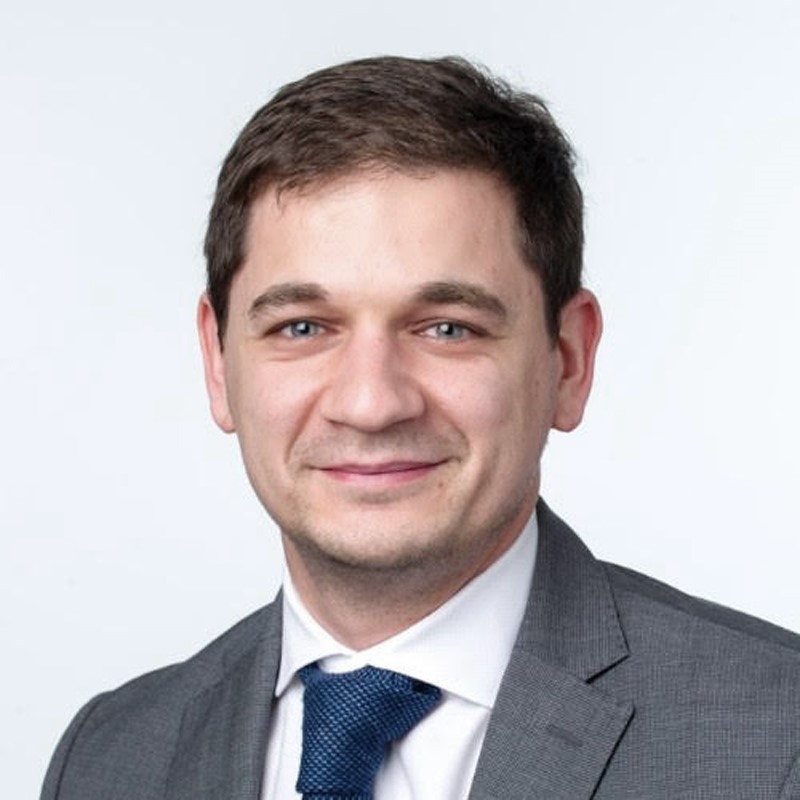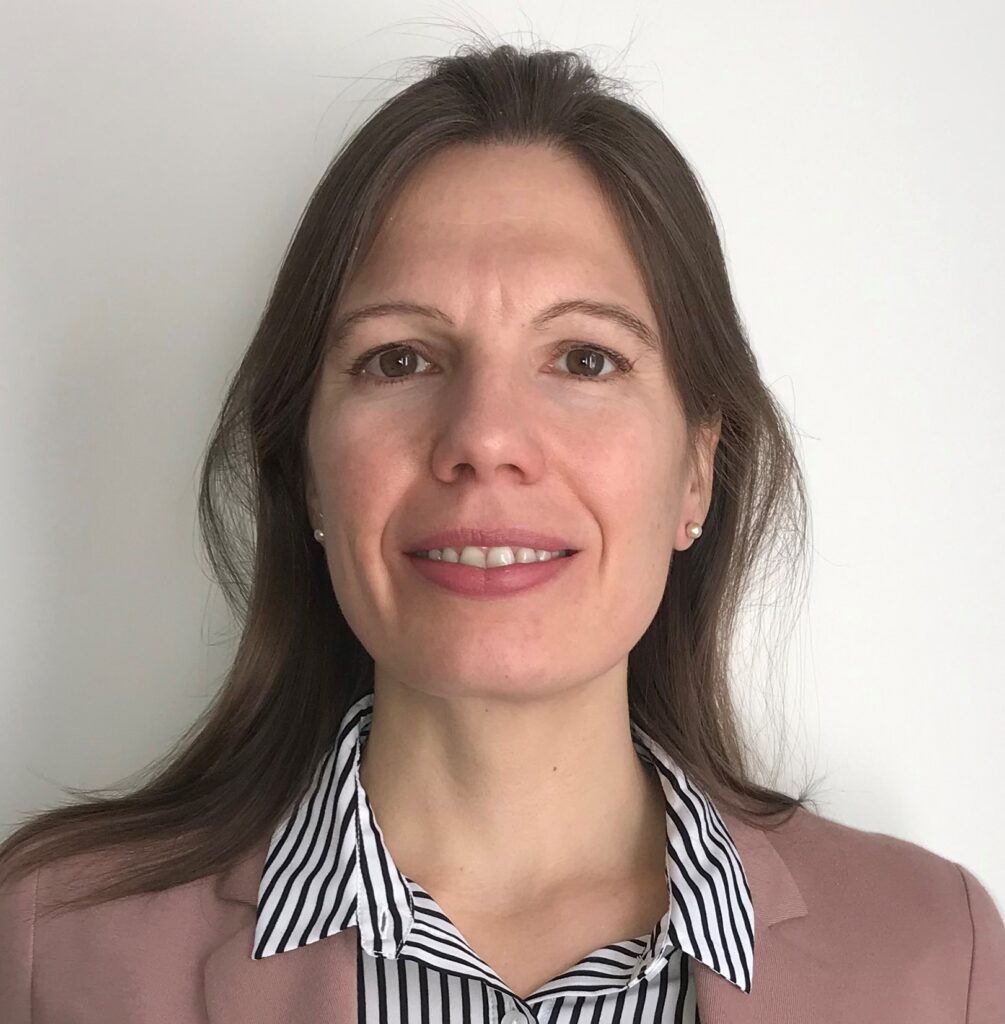Refugee Finance in times of uncertainty: mitigating risks and identifying opportunities
24 May and 26 April 2022
14:30 - 16:00
Online

INTRODUCTION
The crisis in Ukraine continues to impact financial markets across the world. As financial service providers begin to come to terms with the new realities they are facing, it’s important to understand the new key issues and risks they are facing, how their portfolios are already (and will continue to be) impacted and what short-, medium- and long-term solutions they have at their disposal to confront the new world that is emerging from this crisis.
In session two of the Refugee Finance in Times of Uncertainty: Mitigating Risks and Identifying Opportunities webinar series, we explore the key issues and risks financial service providers in Eastern Europe and Central Asia are facing as well as what actionable solutions can better position them to serve clients both now and in the future.
Michael Kortenbusch, Managing Director, Business & Finance Consulting GmbH (BFC), Moderator
Michael Kortenbusch is the principal Founder and Managing Director of Business & Finance Consulting (BFC) GmbH, a Swiss-based consulting firm that promotes and facilitates financial sector development through client-centric, data-driven solutions, complementing and supporting IFI’s investment work in emerging markets.
He has more than 20 years of experience in development finance, advising financial institutions in South-East Europe, Caucasus, Balkans, Central Asia, South Asia and MENA region, and his expertise includes strategy & business development, MSME lending & access to finance, due diligence, operational efficiency, and turnaround management.
Mr. Kortenbusch moderated the BFC pandemic crisis-response webinars held from July to September 2020, addressing important topics and solutions to access to finance and coping with the economic impact of the crisis, including digitisation & digital transformation, and credit process in times of crisis with key recommendations and case studies.

Malkhaz Dzadzua, Financial Inclusion, and Strategy Expert, CEO of MFI Crystal in 2004-2019
Malkhaz Dzadzua is a Financial Inclusion and Strategy Expert, with 20 years of experience in senior management and leadership positions, including 15 years as CEO of the MFO Crystal in Georgia. He started his career as a volunteer in a local non-profit organisation working for refugees in Georgia (CHCA), was promoted to Branch Manager and Program Director, and in 2004, he became the founding member and CEO of a microfinance start-up (Crystal MFO), successfully leading the company for 15 years. During this time, Crystal evolved from a locally-owned start-up to a market leader and the first publicly listed microfinance institution in Georgia, with a 25% of market share.
Since 2019, he is FMO Nominee Director at the Supervisory Board of IMON, a leading micro-credit deposit organisation in Tajikistan, and since 2018 is member of the Board of Directors at the SPTF – a global membership organisation working to advance social performance management in inclusive finance.

Violette Cubier, Program Manager for Technical Assistance at the Foundation GCA (Grameen Crédit Agricole)
Ms. Violette Cubier has 8 years of experience working in the field of microfinance. She began her career volunteering at the Pan-American Development Foundation in Colombia, after which she became an analyst and investment manager for a French crowdfunding platform specialized in microfinance. In 2016, She joined the Grameen Crédit Agricole Microfinance Foundation as an investment officer and, since March 2020, has managed the Foundation’s technical assistance programs.
In her current role, she is responsible for managing/overseeing several major initiatives, including the African Facility (AFD), the West Africa Program (EIB/Luxembourg government), the Refugee Financial Inclusion Program (SIDA/UNHCR) and the Solidarity Bankers Program (international volunteering group). She is also responsible for developing program concepts, draft proposals and conducting fundraising activities.

Dumitru Vicol, Financial Markets and Strategy Expert focused on emerging economies
Mr. Dumitru Vicol is a financial markets and strategy expert with more than 10 years of practical experience in assessing macroeconomic contexts and financial markets throughout Central and Eastern Europe, with a particular focus on developing comprehensive strategies to boost financial sector development in emerging economies. He has also served in several key advisory roles specifically related to the development of MSME policies and crowdfunding frameworks.
Throughout his career, he has developed an in-depth understanding of the complexities of financial markets in emerging economies, including key challenges to further development and what drives successful market development. This includes thorough knowledge of how each market’s unique characteristics can best be leveraged for sustained development.

Dmytro Romanov, Banking Expert and Business Analyst, Business & Finance Consulting GmbH (BFC)
Mr. Dmytro Romanov is a banking expert and business analyst at BFC. He has 13 years of experience in banking, including more than 8 years in managerial positions and leading teams at financial institutions in Ukraine. He has strong experience in MSME credit risk assessment, the analysis of the financial and business positions of borrowers and building financial models as well as implementing projects, products and tools for digital transformation and process automation.
He is experienced in developing context-based lending and business analysis methodologies, including for proper crisis management in crisis situations, and has managed projects and teams in multicultural and remote work environments.

Session One
INTRODUCTION
The first webinar will examine current issues with refugee access to finance in countries neighboring Ukraine from a number of key perspectives, including those of refugees, financial institutions, donor organizations and regulators.
We will discuss:
- the immediate financial needs of refugees
- the importance of adjusting regulatory frameworks
- the required support by the development financial institutions for the refugees’ financial inclusion
- the role of the financial service providers in providing both financial and non-financial services.
SESSION ONE AGENDA
Panel | TOPICS |
THE SITUATION TODAY | The Ukrainian refugee crisis in countries neighboring Ukraine Key challenges of Ukrainian refugees related to access to financial services |
Financial services to Ukrainian refugees in neighboring countries | |
Actual reactions to the unfolding refugee crisis by Development Financial Institutions (DFIs), regulators and other stakeholders | |
THE WAY FORWARD | Ukrainian refugees’ financial emerging needs |
Regulatory framework — priorities for adjustment | |
DFIs support to financial inclusion of Ukrainian refugees | |
FSPs’ perspectives for financial and non-financial services for refugees | |
QUESTIONS & ANSWERS | Between presentations as well as time at the end of the webinar |
Our experts:
Michael Kortenbusch, Managing Director, Business & Finance Consulting GmbH (BFC), Moderator
Michael Kortenbusch is the principal Founder and Managing Director of Business & Finance Consulting (BFC) GmbH, a Swiss-based consulting firm that promotes and facilitates financial sector development through client-centric, data-driven solutions, complementing and supporting IFI’s investment work in emerging markets.
He has more than 20 years of experience in development finance, advising financial institutions in South-East Europe, Caucasus, Balkans, Central Asia, South Asia and MENA region, and his expertise includes strategy & business development, MSME lending & access to finance, due diligence, operational efficiency, and turnaround management.
Mr. Kortenbusch moderated the BFC pandemic crisis-response webinars held from July to September 2020, addressing important topics and solutions to access to finance and coping with the economic impact of the crisis, including digitisation & digital transformation, and credit process in times of crisis with key recommendations and case studies.

Liliana M. Pozzo, Sustainable Finance Advisory Services Manager at International Finance Corporation, World Bank Group
Liliana Pozzo is currently the Sustainable Finance Advisory Services Manager (Europe & LATAM) at the IFC, where she leads client advisory solutions in ESG, digital banking and transformation, bank-FinTech collaboration, MSME finance, climate finance, and gender finance, to support financial entities in their digital transformation and to promote financial inclusion. Prior to joining IFC, she was Director of MSME Consulting Services at ES Global Consulting and worked for KPMG and Mercy Corps. She has a strong record of managing impactful projects in the financial sector to enhance client business and value propositions, while addressing financial inclusion in their markets.
Ms. Pozzo participated in many events (summits, webinars, conferences) covering the topics of financial inclusion, digitisation, financial education, and driving financial inclusion amid crisis situations (refugees, climate, etc.).

Malkhaz Dzadzua, Financial Inclusion, and Strategy Expert, CEO of MFI Crystal in 2004-2019
Malkhaz Dzadzua is a Financial Inclusion and Strategy Expert, with 20 years of experience in senior management and leadership positions, including 15 years as CEO of the MFO Crystal in Georgia. He started his career as a volunteer in a local non-profit organisation working for refugees in Georgia (CHCA), was promoted to Branch Manager and Program Director, and in 2004, he became the founding member and CEO of a microfinance start-up (Crystal MFO), successfully leading the company for 15 years. During this time, Crystal evolved from a locally-owned start-up to a market leader and the first publicly listed microfinance institution in Georgia, with a 25% of market share.
Since 2019, he is FMO Nominee Director at the Supervisory Board of IMON, a leading micro-credit deposit organisation in Tajikistan, and since 2018 is member of the Board of Directors at the SPTF – a global membership organisation working to advance social performance management in inclusive finance.

Susanne Klink, Senior Livelihood and Economic Inclusion Officer at the UN Refugee Agency
Ms. Susanne Klink is a Senior Livelihood and Economic Inclusion Officer at the United Nations High Commissioner for Refugees (UNHCR) Regional Bureau for Europe. She has been working on refugee integration, socio-economic inclusion of vulnerable and marginalized groups, livelihoods strategy, and the humanitarian–development nexus since 2007, through different assignments in Europe, the Americas and Northern Africa with UNHCR, International Organization for Migration (IOM), and other development organizations.
Ms. Klink has participated in many events focused on financial inclusion of refugees, addressing the issues of facilitating access to financial services for refugees and their needs for financial services, as well as identifying and addressing the obstacles and the challenges for refugee integration.

Micol Pistelli, Senior Financial Inclusion Coordinator at UNHCR
Micol Pistelli is a Senior Financial Inclusion Coordinator at the United Nations High Commissioner for Refugees (UNHCR), where she is in charge of coordinating the activities on financial inclusion for refugees and other forcibly displaced at the global level.
Prior to joining UNHCR in 2016, Ms. Pistelli worked for eight years as Director of Social Performance at MIX, where she led the global strategy for social performance data collection and analysis, training and publishing widely on microfinance institutions’ performance. She was also a board member of several industry initiatives on financial inclusion, among which – the Social Performance Task Force.
At the beginning of her career in development, Ms. Pistelli gained field experience in microfinance working in Egypt and Paraguay, and also worked at the Italian Ministry of Foreign Affairs.
Ms. Pistelli participated in many events for inclusive finance and financial inclusion of refugees, as well as writing a number of articles on the topic.

Our partners



